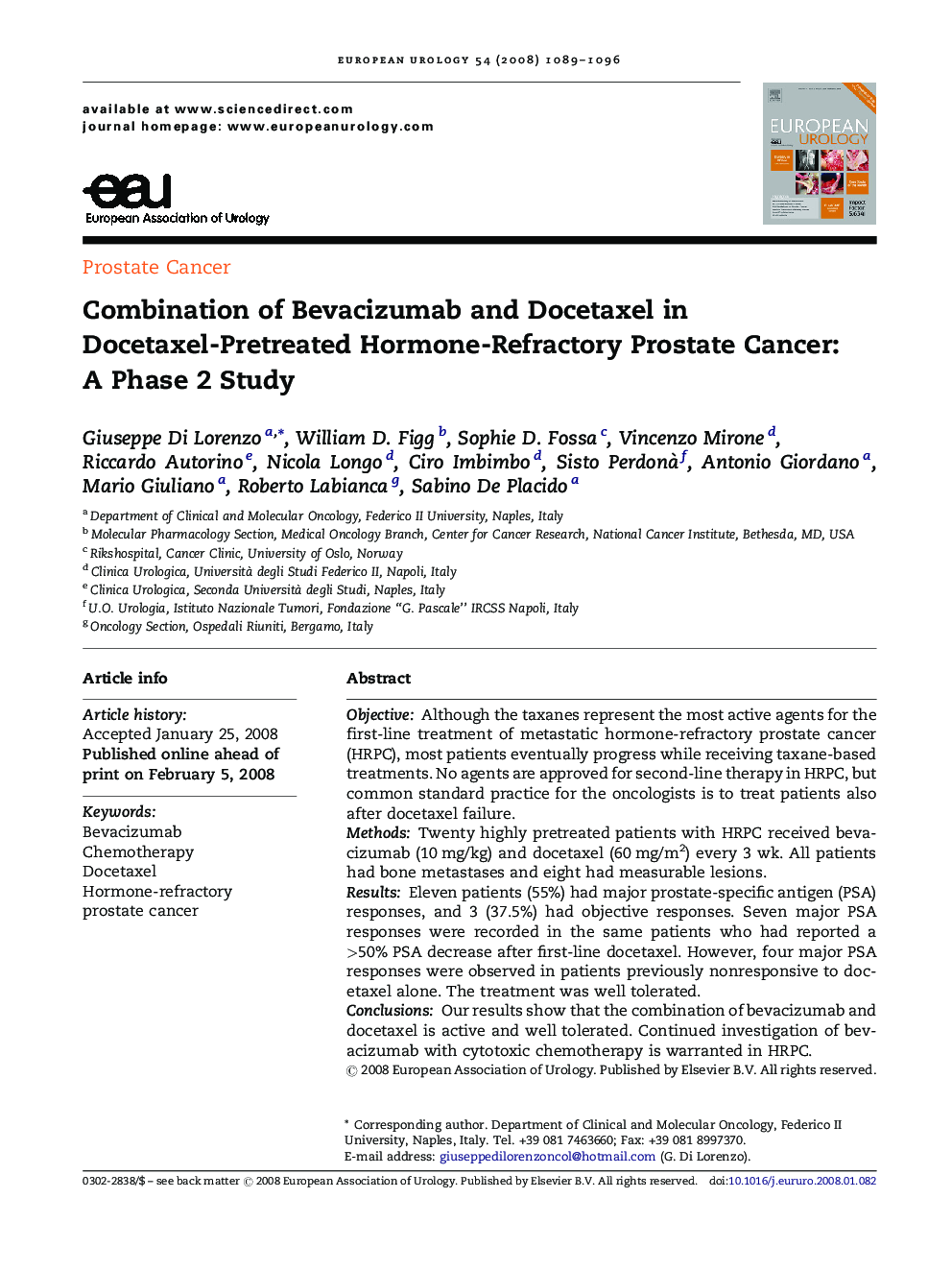| Article ID | Journal | Published Year | Pages | File Type |
|---|---|---|---|---|
| 3925636 | European Urology | 2008 | 8 Pages |
ObjectiveAlthough the taxanes represent the most active agents for the first-line treatment of metastatic hormone-refractory prostate cancer (HRPC), most patients eventually progress while receiving taxane-based treatments. No agents are approved for second-line therapy in HRPC, but common standard practice for the oncologists is to treat patients also after docetaxel failure.MethodsTwenty highly pretreated patients with HRPC received bevacizumab (10 mg/kg) and docetaxel (60 mg/m2) every 3 wk. All patients had bone metastases and eight had measurable lesions.ResultsEleven patients (55%) had major prostate-specific antigen (PSA) responses, and 3 (37.5%) had objective responses. Seven major PSA responses were recorded in the same patients who had reported a >50% PSA decrease after first-line docetaxel. However, four major PSA responses were observed in patients previously nonresponsive to docetaxel alone. The treatment was well tolerated.ConclusionsOur results show that the combination of bevacizumab and docetaxel is active and well tolerated. Continued investigation of bevacizumab with cytotoxic chemotherapy is warranted in HRPC.
